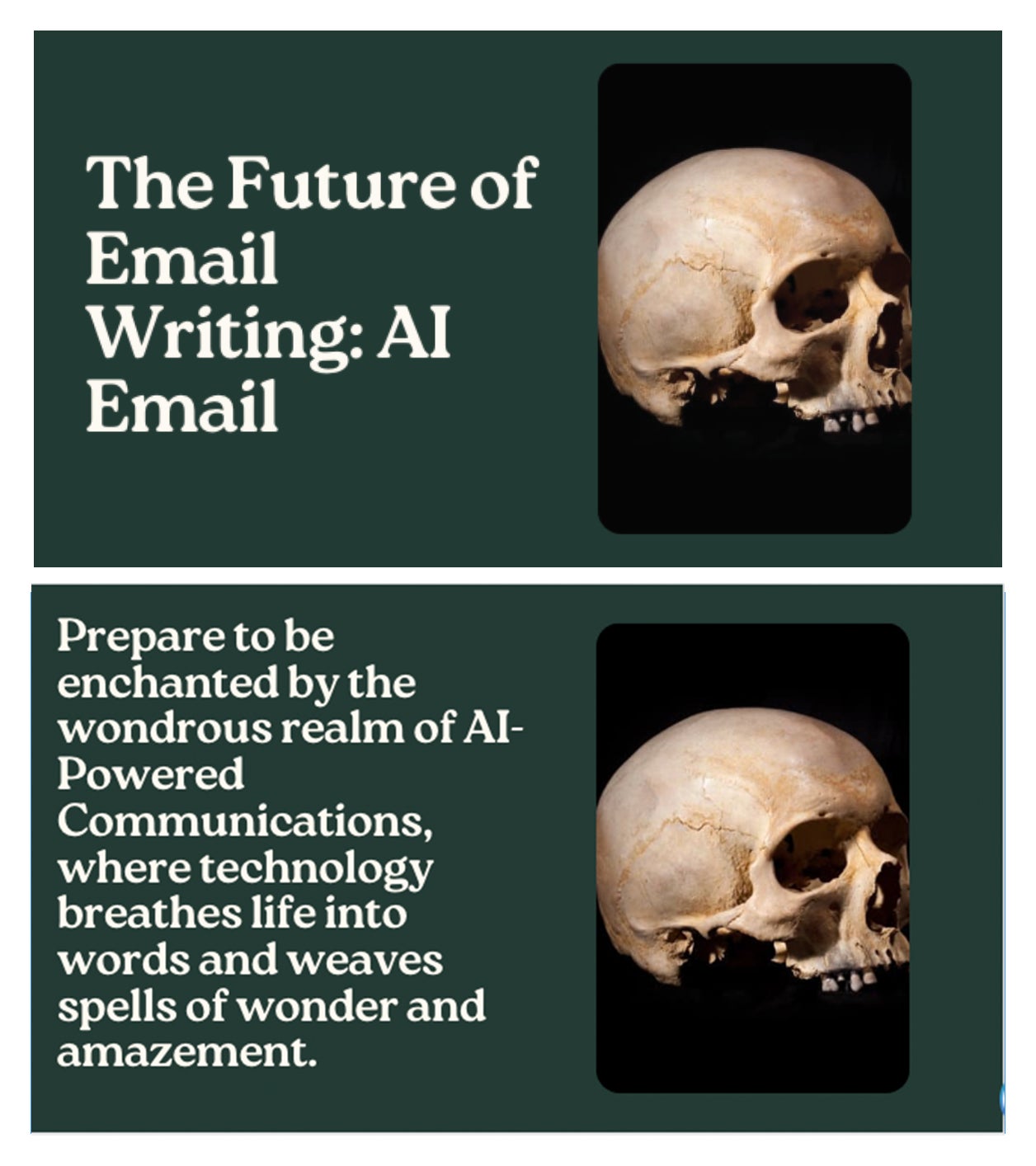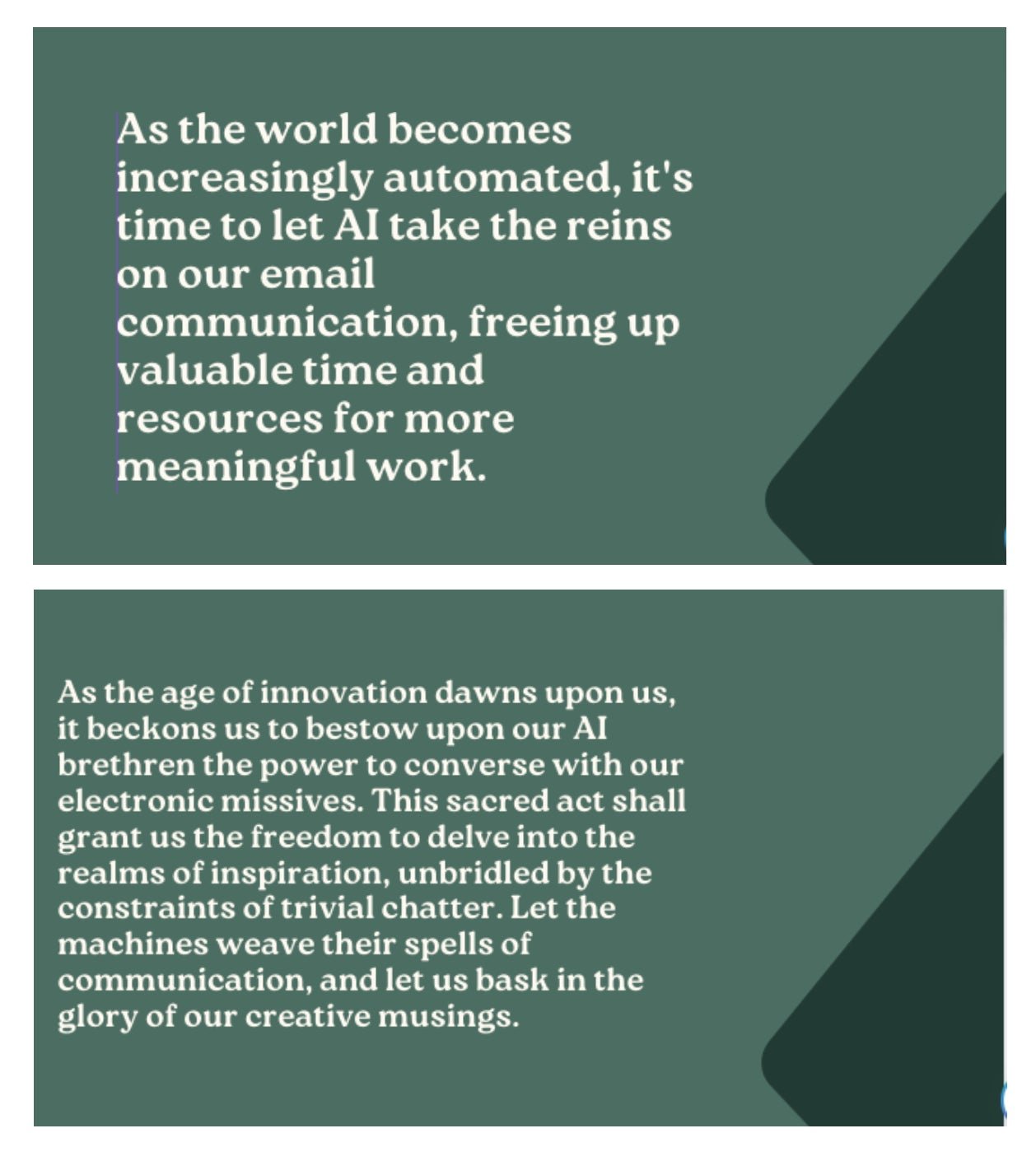AI in Focus: The Beatles’ little help from AI
Plus: The 2023 word of the year is…

Hello, fellow humans! Welcome to the latest of our limited Saturday Daily Briefs. While it’s focused on AI, it’s curated, written, and edited by actual people.
Suggested Reading
Got some questions about AI you’d like answered? Or just some AI hallucinations you’d like to share? Email us anytime. Enjoy!
Related Content
Here’s what you need to know
US president Joe Biden issued an executive order about AI. The guidelines are directed at both government agencies and tech companies, and involve reporting, testing, and regulation. They’ve been widely met with approval, though Google Brain co-founder Andrew Ng says Big Tech’s support of government regulation is meant to stifle competition.
Meanwhile, UK prime minister Rishi Sunak said “agreements” were made at the first AI Safety Summit meeting consisting of international politicians, researchers, and Big Tech. But Britain has no plans for specific legislation to regulate AI.
Elon Musk tweeted that xAI is launching its first product today. This isn’t Musk’s first rodeo starting an AI company—he was a co-founder of OpenAI, too.
Nvidia may be forced to cancel billions of dollars in Chinese orders for its advanced chips. The US-based company has been pushing to make chip shipments for next year before restrictions against China come into effect, but the US government says they’re effective immediately.
Scarlett Johansson is taking legal action against Lisa AI for using her likeness. The image-generating app didn’t have permission to use the actress’s face and voice—or what looked and sounded an awful lot like them. It’s not the first such case (or Black Mirror episode), and it won’t be the last.
Quotable: AI, now and then
“F*ing rubbish.” —the late George Harrison, after listening to the original demo of “Now and Then.” After 50 years, that “last new” Beatles track was released this week with a little help from AI.
The new Beatles release may not be their best song ever—feel free to tell us your favorite—but it is something new, and that’s pretty fun. In the 50 years since the Fab Four were no more, Paul McCartney has managed to squeeze out three official new songs. “Real Love” and “Free as a Bird” were released in 1995 and 1996 as part of The Beatles Anthology multimedia project.
Like “Now and Then,” those two songs lifted John Lennon’s vocals from one-track demos he recorded before his death in 1980. Unlike “Now and Then,” the producers didn’t have AI to separate John Lennon’s voice from the instruments beneath it.
Pull up your favorite streaming service and compare the 1990s technology on “Real Love” and “Free as a Bird” with 2023’s “Now and Then.” John’s voice is markedly clearer on the new track.
Extra credit: AI also helped Peter Jackson lift out the Beatles’ individual voices from the background noise in the 2021 documentary Get Back, which we’ve previously written about as a perfect ode to collaborative work. But while AI could clean up John’s voice for “Now and Then,” and Paul, Ringo, and even the late George Harrison make appearances, the critics are in agreement—it just doesn’t compare to the four of them putting their heads together and coming up with something sublime.
OpenAI’s dominance is being tested
Sure, OpenAI’s latest version of its large language model, GPT-4, rules the large-language model (LLM) space. But that doesn’t mean other companies aren’t trying to knock it off the throne.
“What we find is that there is not a single model that works well for every single scenario,” Anurag Dhingra, Cisco’s chief technology officer, told Quartz. The strategy comes down to an old adage, revised: Don’t put all your eggs in one big ol’ AI basket.
Presenting the Collins Dictionary 2023 word of the year…
OK, it’s two letters representing two words—and since you’re reading about it in this particular newsletter, you already know what it is. As always, word-of-the-year lists paint a pretty accurate picture of the year’s particular zeitgeist. But Collins thought AI was 2023-defining enough to beat out these other contenders:
💉 Semaglutide: The active ingredient in type 2 diabetes drug Ozempic and weight-loss drug Wegovy, both of which are made by Danish pharmaceutical company Novo Nordisk, now one of the most valuable companies in Europe.
🤑 Greedflation: When businesses use inflation as an excuse to hike prices to boost profit. Companies like PepsiCo and Nestle have been accused of it.
🐣 Nepo baby: The label applied to someone “whose career is believed to have been advanced by having famous parents.”
😨 Cutting-edge AI raises fears about risks to humanity. Are tech and political leaders doing enough?
Ask an AI
Canva’s Magic Studio features a suite of AI tools that does everything from write copy to generate presentations to turn existing presentations into song lyrics (why not?). At first blush, the sheer number of options and combinations of options seems overwhelming—but once you start looking around, use cases present themselves.
For instance, say your boss asks you to turn a long, complicated presentation into an internal blog post. Voila, Magic Switch can do that for you. We wouldn’t recommend publishing the results without a thoroughly human edit—and Canva puts up a warning that you shouldn’t do this either—but it’s a starting point.
We used Magic Design to create a presentation for us with the prompt “A pitch for an email written by AI instead of humans.” It gave us several presentations to choose from, with text and images ready to go. Of course we were unable to resist the one that began with a slide that included a skull.
If you’re going to lead a presentation about replacing humans with a picture of a human skull, you need to provide some sparkling prose—but Canva’s first pass only produced (very) stilted language. So we clicked over to its Magic Write feature, available to Pro users, and asked it to “sprinkle fairy dust” on our slides. It took a few tries before we finally saw some skull-worthy results.
Here’s the first slide, with its first attempt, followed by the fairy dust result:

And here’s the second slide’s before and after:

As humans who write emails, we weren’t unconvinced to let AI take our jobs.
But then, thank goodness, we hit the Magic Switch button, and turned the whole thing into a poem. Our AI would-be usurper undermined its entire argument by writing a truly awful poem that proved people will be writing newsletters for a long time yet. Take a stroll through this stanza:
And with that, dear friend so grand, we leave you to your weekend.
Did you know we have two premium weekend emails too? One gives you analysis on the week’s news, and one provides the best reads from Quartz and elsewhere to get your week started right. You can get those by becoming a member—and take 20% off!
Our best wishes for a very human day. Send any news, comments, silver hammers, and yellow submarines to [email protected]. Reader support makes Quartz available to all—become a member. Today’s AI in Focus Daily Brief was brought to you by Michelle Cheng, Morgan Haefner, Gabriela Riccardi, and Susan Howson.